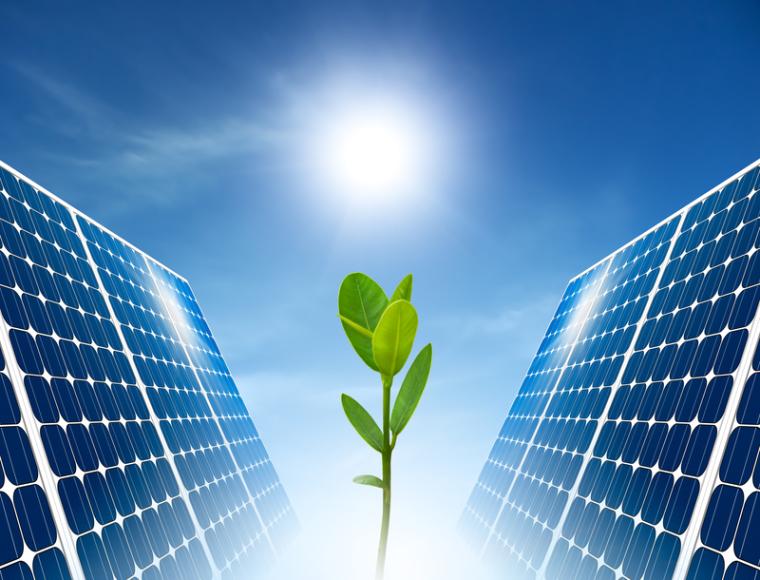
Qcells, an industry-leading clean energy solutions provider, announced the successful completion of its Dalton, Georgia, factory expansion. Qcells added 2 gigawatts (GW) of solar capacity to Dalton, bringing the full factory's output to more than 5.1 GW. The Qcells Dalton factory is the largest manufacturing plant of its kind in the Western Hemisphere and the first solar panel plant expansion since the passage of the Inflation Reduction Act (IRA). This addition marks the first phase of Qcells' historic $2.5 billion investment announced in January 2023.
The completed Dalton expansion created 510 additional solar factory jobs and will also assemble two new solar products: the Q.TRON G2 residential solar panel and a bifacial panel for the commercial and utility markets. Qcells' Dalton factory will manufacture nearly 30,000 solar panels per day.
Beyond Dalton, the investment includes the development of a fully-integrated solar supply chain factory in Cartersville, Georgia. The highly anticipated Cartersville factory will manufacture solar ingots, wafers, cells and finished panels.
By 2024, between the Dalton and Cartersville facilities, Qcells anticipates its solar production capacity to reach 8.4 GW a year, enough to power 1.3 million homes annually with clean energy.
"Completing this factory marks the third expansion we've made in Dalton, and it's just the beginning of Qcells' larger mission to build a fully integrated solar supply chain in America," said Justin Lee, CEO of Qcells. "The Inflation Reduction Act and the efforts of Georgia's economic development team helped make these ambitious plans possible, and with it thousands of careers in clean energy. As we build new solar technology from Dalton and prepare for the start of Cartersville, it is critical that our local to federal leaders continue to work not only with us, but the larger industry to ensure our collective investments deliver for communities for decades to come."
"Out of all the places Qcells could have gone, they chose to operate and expand here in Georgia because of our unrivaled assets and the competitive package we put together in 2019," said Governor Brian Kemp. "This latest milestone is a testament to the hard work of the Dalton community and the relationship we've built on the state level with this innovative company. We look forward to the new jobs this expansion will bring for Georgians in that area."
"When I wrote and passed the Solar Energy Manufacturing for America Act, it was with this exact goal in mind. I thank Qcells for their continued investment in Georgia," U.S. Senator Jon Ossoff said. "Our state is emerging as the advanced energy capital of the nation, thanks to Federal infrastructure and manufacturing policies that are benefiting Georgia more than any other state in the country."
"With Qcells' multi-billion dollar factory expansion in north Georgia up and running, Georgians are seeing the real-time benefits of the Inflation Reduction Act and its clean energy provisions as our state continues to embark on a green energy revolution," said Senator Reverend Warnock. "With over 500 solar manufacturing jobs added in the process, Qcells is proving that taking action to address climate change and growing our economy can go hand in hand. I look forward to continuing to partner with Qcells as our state becomes the premier destination for the solar manufacturing industry."
Qcells opened its first factory in Georgia in 2019 and hired 750 people to manufacture 1.7 GW of solar. This initial investment was made possible in part by the Section 201 tariffs imposed on solar cells. As the nation's demand for solar grew, so did Qcells' investment in its Dalton facility. Last year, Qcells announced a plan to add 1.4 GW to its manufacturing output and hire 535 more people.
This now completed third expansion, as well as Qcells investments across the full solar value chain, follow the passage of the Solar Energy Manufacturing for America Act within the IRA and are made possible with the incredible support from Georgia's economic development team.
Qcells' new products – the Q.TRON G2 and their new bifacial panels – represent the company's next generation of solar and underscores its commitment to developing reliable, cost-effective products at scale. These products also showcase Qcells' larger commitment to sustainability. Both products will likely achieve an ecolabel known as EPEAT, which helps customers identify sustainably made products.
Qcells' completed Dalton factory expansion and current development in Cartersville aim to accelerate the United States' shift towards renewable energy. Upon completed construction, Qcells' production in Georgia could avoid more than 12 million metric tons of CO2 equivalents per year while expanding domestic manufacturing of solar products amidst the push for Made-in-America clean energy solutions.
